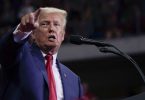Wednesday, July 2, 2025
The White House has recently reinforced its stance on Cuba by announcing tighter economic restrictions, continuing a policy approach that has long been in place despite widespread belief among economists that these measures will have limited impact. President Trump’s new memorandum echoes his earlier campaign promises and reinforces his commitment to Cuba’s opposition, focusing on restricting tourism, limiting foreign investment, and tightening the economic embargo. However, many experts argue that these actions will have little effect on Cuba’s economy or political system, as the measures simply continue a pattern of policies that have been enforced for decades, exacerbating the island’s economic struggles without bringing about any significant change.
The United States government has once again turned its focus to Cuba, with the White House issuing a new set of measures aimed at tightening the economic restrictions on the island. On Monday, President Trump signed a memorandum designed to further strengthen US policies toward Cuba, aligning with his previous stance and reiterating campaign promises to stand with the Cuban people in their pursuit of freedom. While these measures may appear significant at face value, many experts argue that they represent “more of the same” and will likely have little effect on Cuba’s economic or political situation.
The memorandum issued by the White House comes at a time when relations between the two countries remain strained, and the Cuban economy continues to struggle. It outlines plans to limit tourism to Cuba, restrict foreign investment, and reinforce the long-standing economic embargo that has been in place since the 1960s. These policies are not new but are a continuation of actions taken by the Trump administration during his first term. The renewed focus on these restrictions seems to reflect an attempt to maintain pressure on the Cuban government, but many experts believe that the measures will have little impact on the island’s political or economic trajectory.
President Trump’s policy shift towards Cuba is not without context. During his electoral campaign, he emphasized his commitment to standing with the Cuban people, advocating for their right to justice, liberty, and freedom. The measures announced this week appear to follow through on that rhetoric. However, the reality is that these actions largely reiterate the policies implemented during Trump’s earlier tenure in office. While they may present a firm stance against the Cuban government, the policies are likely to continue to exacerbate the economic challenges faced by the Cuban people without bringing about meaningful change in the country’s governance or economic structure.
During his first term in office, President Trump reversed several of the diplomatic advancements made under President Obama, particularly those aimed at improving relations with Cuba. Under Obama, the US had eased certain travel restrictions, restored diplomatic ties, and allowed more remittances to flow into Cuba. However, when Trump took office, he reintroduced stringent restrictions, including curtailing travel and tightening remittance controls. The result was an economic strain on Cuba, which experienced a reduction in tourism and limited foreign investment. The recent memorandum builds on these previous measures, reinforcing a policy that has effectively blocked many avenues for Cuba’s economic growth.
While President Biden’s administration did make some attempts to reset US-Cuba relations during its first term, the reality is that the Biden administration has maintained most of the restrictions that were put in place during Trump’s tenure. Biden did briefly remove Cuba from the list of state sponsors of terrorism, only to reimpose the designation shortly after taking office. With few changes to US-Cuba policy under Biden, Cuba continues to face significant economic and political challenges, compounded by the long-standing embargo.
The new National Security Presidential Memorandum (NSPM) issued by the White House aims to address these challenges by tightening the restrictions on Cuba even further. One of the key provisions in the memorandum is the prohibition of financial transactions with entities that are controlled by the Cuban military, such as the Business Administration Group S.A. (GAESA). This measure is intended to cut off financial support to the Cuban government and its military leadership, which has long been accused of exploiting the island’s resources for political and economic gain.
In addition to the financial restrictions, the White House has reiterated its stance on migration. The memorandum explicitly opposes the reinstatement of the “Wet Foot, Dry Foot” policy, which was eliminated under President Obama. This policy had granted Cuban migrants who reached US soil the right to stay in the country and apply for residency. By opposing the reinstatement of this policy, the Trump administration aims to discourage illegal migration from Cuba, which has historically seen many Cubans make perilous journeys across the sea in search of a better life in the US.
The memorandum also includes measures aimed at promoting support for the Cuban people through the expansion of internet access, the encouragement of independent press, and the promotion of free enterprise. While these initiatives are presented as efforts to foster democratic change, many critics argue that they are unlikely to have any substantial impact on the Cuban regime or its control over the population. Despite efforts to open up more space for independent media and economic freedom, Cuba continues to face significant state control over many aspects of life, and any meaningful change will require more than just external pressure.
For economists like Cuban expert Omar Everleny Pérez Villanueva, these measures are unlikely to bring about meaningful change. Villanueva, a former director at the University of Havana’s Center for Cuban Economic Studies, believes that the current set of restrictions only reinforces the economic blockade that has been in place for over six decades. According to Villanueva, foreign companies already face significant pressure to withdraw from Cuba, and the decline in American tourism to the island has already occurred. In 2018, Cuba welcomed 4.6 million tourists, but by 2021, this number had fallen to just 2.2 million. While the US embargo plays a role in this decline, Villanueva argues that Cuba’s broader economic difficulties are driven by internal factors as well.
Despite these challenges, the Cuban government continues to seek foreign investment and aims to revitalize its tourism industry. However, the ongoing restrictions imposed by the US government remain a significant barrier to achieving these goals. Rising prices, food shortages, and a lack of basic goods continue to plague the island, with everyday Cubans bearing the brunt of the economic strain. While the Cuban government has made efforts to attract investment and boost tourism, these efforts have largely been hindered by the economic blockade and the broader geopolitical environment.
Looking ahead, it seems unlikely that there will be any major changes in US-Cuba relations in the near future. With Cuba remaining a low priority on the global stage and overshadowed by other international concerns, it is expected that the economic isolation of the island will continue for the foreseeable future. The Cuban people will likely continue to face economic hardship, and the political status quo will persist, with little hope for relief from the ongoing restrictions imposed by the United States.
The White House has strengthened its economic restrictions on Cuba, continuing Trump’s longstanding policies despite economists’ views that these measures will have minimal impact. The actions aim to limit tourism, foreign investment, and reinforce the embargo, but experts argue they only perpetuate existing challenges for the Cuban economy.
President Trump’s recent actions reinforce the US’s longstanding policy of economic isolation toward Cuba. However, the impact of these new measures is expected to be minimal, with little prospect for meaningful change in the country’s economic or political situation. The Cuban people’s struggle for economic stability and political freedom will likely continue without significant relief from US-imposed restrictions.
«Enjoyed this post? Never miss out on future posts by following us»











